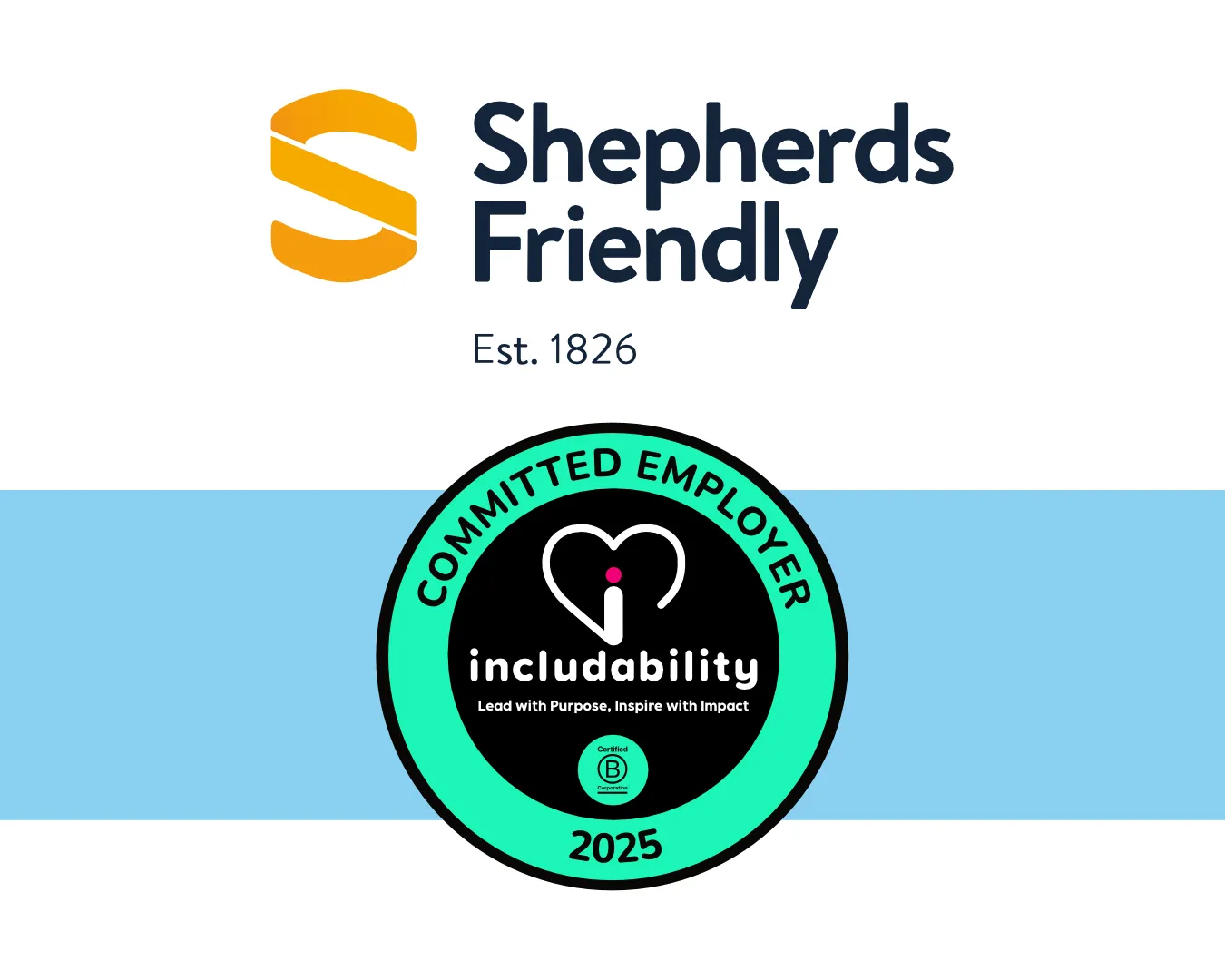The State of UK Gender and Racial Pay Gaps
Only 6% of companies in the FTSE 100 have female CEOs, and just 3.4% of Chair, CFO and CEO positions (in the FTSE 100) are from an ethnic minority background, none of which are black.

A Q&A with Aimee Massey from Become

Aimée Massey is a Diversity and Inclusion Consultant and Co-Founder of Become.
Aimée Massey is a Diversity and Inclusion Consultant and Co-Founder of Become, a social enterprise supporting young women of colour to kickstart their careers.
Only 6% of companies in the FTSE 100 have female CEOs, and just 3.4% of Chair, CFO and CEO positions (in the FTSE 100) are from an ethnic minority background, none of which are black.
It was that statistic that encouraged Aimée and fellow Become Co-Founder, Zahrah Kazim to embark on creating the social enterprise. Become make a difference to women of colour through mentorship, events and industry networking. Their goal is to increase the number of women of colour in industry and help close the gender and race pay gaps.
After a career in marketing Aimée joined the D&I field in March 2020 as an independent consultant and public speaker, and set up Become around the start of the pandemic.
She spoke exclusively to Includability about the extent of the pay gaps that exist along gender, racial, and age lines in the UK from the most recent Office for National Statistics (ONS) figures and how the 2021 Autumn budget will likely affect them.
What are the main pay disparities in the UK right now?
We were really interested to see how Covid was going to affect pay gaps, and it has had an effect (with the caveat that the current data available from the ONS is more uncertain than usual because of difficulties collecting data during the pandemic). Gender and race are the most talked about pay disparities, but there are many things that can act for and against you in regard to pay, including age and socioeconomic status; it’s not clear cut.
There is a gender pay gap. We know that women do earn less than men, but social factors impact that positively or negatively.
During Covid, around 8 million employees were put on furlough, and of those, there was a higher proportion of men than women who were furloughed. That all plays into the data, whether it's for and against or increasing or decreasing the pay gap. Overall the gender pay gap and race pay gaps are narrowing.
Do employment gaps fall on the same lines between gender and race?
There is definitely a correlation there. The ONS didn't publish the data for 2020 but for 2019, we know that 4% of white people were unemployed compared with 7% of people from all other ethnic groups combined. They showed that black, Bangladeshi and Pakistani people have the highest unemployment rates out of all ethnic groups at 8%.
Are the pay gaps more pronounced across one particular line such as gender, race or age?
There's still very limited data on the gaps, but it's clear that amongst the ethnic minorities in the UK, there is a huge discrepancy in pay. What's interesting is that those who identify as white-Irish, or some Indian ethnic groups as well, they are earning a higher hourly pay than white-British employees - around £17.55 per hour for white Irish, whereas those from Pakistani origin earn far less per hour, £10.55. Chinese people in the UK also earn more than white-British. That’s why we can't just say there's an ethnic pay gap where white people are the most well off because it's way more nuanced than that. There's white-Polish people, white-Irish people, and the spectrum is worlds apart.
There's a very complex spectrum of racial pay gaps and to be an ethnicity other than white-British doesn't necessarily mean you are earning less. This is when the term BAME can be problematic because there are too many people and cultures grouped into one that have very different experiences.
It's interesting to note that the gender pay gap is higher in England than it is in Wales, Scotland and Northern Ireland, with London showing the widest gaps; the ethnicity pay gap in London is around 23.8%.
There are lots of reasons why this could be, a large factor for that is just the disparity. You have people earning the highest wages in the country in London, unbelievably high, often six figure salaries, and people learning the lowest, literally surviving on minimum wage and benefits.
What data would you suggest employers gather to better diagnose the pay gap problem?
Currently, if you have 250 employees or more, you must announce your gender pay gap, but as far as I'm aware of right now, there's no obligation to publish your racial pay gaps.
It is interesting to note that lots of companies are then disengaged from exploring their gaps. They don't want to look into it because they don't have to, and companies are busy enough as it is to add another spectrum into their data. For those who are already publishing gender pay gaps though, if you're already doing that survey, it's not much more effort to add in an extra tick box saying, how do you identify in terms of gender, and in terms of ethnicity.
Getting that data from companies, as long as it's treated safely and companies and employees can feel secure, is really important and having that data will be helpful because the more you know about your people, the more you can help them and support them.
Are there specific industries where pay gaps are more pronounced?
The gender pay gap is at its greatest in the skilled trades; builders, plumbers, electricians, machine operatives, technicians etc., traditionally male dominated industries.
It also speaks to opportunity as there are no black CEOs in the boardrooms of FTSE 100 companies in the UK and only 13 report any ethnicity pay gaps. That is why we started Become, our social enterprise, to support women of colour in the workplace.
There are 21,000 professors in the UK, but only 1% of black. Looking at the kind of application processes as well in terms of who's getting jobs, applicants from minority ethnic backgrounds have to send in 80% more applications to get a positive response from an employer than a white British person.
Have recent events exacerbated the existing pay gaps? And will the current labour shortages lead to any wage increases?
Potentially. Especially with labour shortages because we are now looking to employ those from different countries for particular jobs. The HGV driver shortage has been heavily publicised. That probably will lead to employers having to incentivise people to come over here to work in those jobs.
Regarding the pandemic and recent events, the data is less accurate. We don't know how much yet is long lasting or how short term the change is, but there has definitely been change. We know that the pandemic has led to women being hit hardest because they're having to take on those extra care responsibilities, whether that's for children, elderly parents, or relatives.
Women are also more likely to work part time than men and more likely to work in more insecure hourly employment or part-time employment. Unfortunately, those types of jobs were from the hardest hit sectors such as hospitality and retail. Particularly for mothers, who are 47% more likely to have permanently lost their jobs or quit in this time.
Are employees purposely taking jobs with a lower wage in favour of other benefits like a childcare, wellbeing initiatives, or flexible working?
Absolutely. Lots of women are having to take a lower pay in order to have a shorter commute because of increased caring responsibilities, and they don't have that time flexibility.
People are also looking to live in greener spaces during the pandemic with certain people re-evaluating their values and priorities, like what do they want from life and from home? And home has never been more important to people. Home is where we are now spending 80% of our time. It's typical when a big traumatic event, like a pandemic, happens that people make change.
Is there a correlation between the monetary value which employees are paid and their health and wellbeing?
That probably depends on the individual or the family, on their base level income and their savings; there's so many factors at play. Any kind of loss of income is stressful, but particularly for those who are in the lower socioeconomic backgrounds because they don't have any buffer; they don't have those savings available to them and that is a huge stress for families. If they've got to choose between being home for their children or putting food in their mouths by bringing money in, that's an incredibly stressful place to be in.
Mental health services have been stretched to breaking point before the pandemic and now it's even worse, and we just hope that people get the support they need.
Has the rise of gig economy employers and also agency employers contributed to these pay gaps?
There's definitely something to be said for how many jobs the gig economy has provided. That's significant and that's helped a lot of people and that's really important.
However, when people aren't registered as salaried employees, there is job uncertainty. That means wage variations month to month where you never know if you're going to be on 40 hours or 12 hours. It can be difficult to plan to buy homes and to settle in one place and there will be a knock-on mental health effect for people in those types of positions.
What can fellow employees do to ally themselves to those on low wages to help narrow the pay gaps?
Transparency for employees and employers is important. People are still hesitant to talk about money, especially in British culture - it makes them feel uncomfortable. It's something we've always been told we shouldn't talk about, and we tend to shy away from that, but it is important that we know what our colleagues are on so we can understand the full facts of a situation.
You can also use your voice and your weight internally to help. I think it is important to never speak on behalf of someone, always speak to them first if it concerns them, but just make the offer to them. Saying “what can I do?” is really powerful. It doesn't have to be a patronising question or hurting someone's pride, it is just about, can I do anything to help? How can I support you.
What can employers do to support a fair wage system?
There is a lot that employees can do to support fair wages. Even if it's not obligatory for you to publish your pay gaps, run those studies internally, do those surveys and keep an eye on them for yourself so that you can make steps in the right direction and change for the better.
Being transparent about wages in your job posts as well will typically lead to more diversity in the people who apply for your roles. Introducing mentoring schemes and making sure that your L&D budgets are distributed fairly.
Look at your learning and development budgets, are they mainly utilised by men? Are they accessible for women, minorities, neuro-diverse employees? You have to look at where your budget's being spent and identify who's helping others internally.
To tackle the employment gaps, can employers implement fairer recruiting policies such as blind recruitment or unconscious bias training?
Blind recruitment, definitely. Also, diverse hiring panels, safe and accessible places for interview, having a diverse talent pool to hire from, and inclusive job adverts, etc. All of that is really important, but just as important are the benefits and policies in place for when talent is hired.
The hiring piece is very important, but your retention policy and retention rates are important. Ask yourself: Are you losing people? Who are you losing? Retention is a big topic right now because ethnic minorities and women are still more likely to leave a workplace. Women of colour are the most likely to leave a workplace in the first year of work because the internal support systems are insufficient. Make sure you're creating safe spaces for everyone, but also only investing in what's right for you as a company. There's no point in putting in a prayer room, for example, if none of your employees need or want one, it would just be an empty space. All you can do is ask, what can we be doing for you to best accommodate you and support your needs?
How is the Autumn Budget likely to affect the existing pay gaps?
Quite rightly the budget is meant to help those hardest hit financially during the pandemic. However firstly, the ways in which people were hit by the pandemic aren’t just direct financial losses, it ranges from mental health to physical health, those who have had to take on extra care responsibilities, had to leave jobs, or have burnt out; issues that predominantly affect women.
Interestingly, we are already seeing a huge rebound for some of those who were hit worst financially during the pandemic, such as construction workers, but this rebound in pay has tended to be for male dominated industries, which has resulted in a widening of the gender pay gap. In April 2020, the gender pay gap was 7%, this April 2021, it stands at 7.9%.
Image Credit: Aimee Massey
Related resources & events
Sign up for our newsletters
We have an employer and Job seeker newsletter giving you all the latest information in one easy and digestible email. Sign up today for news and job advice straight to your inbox.








